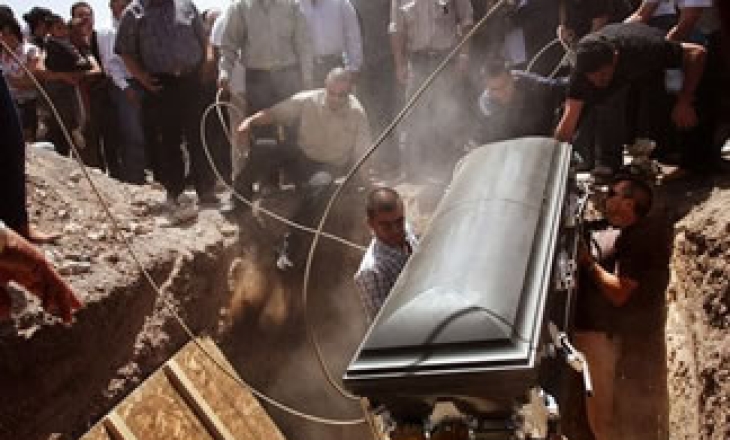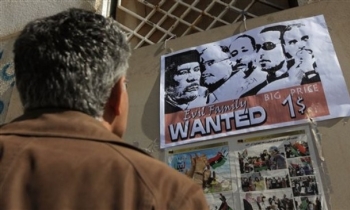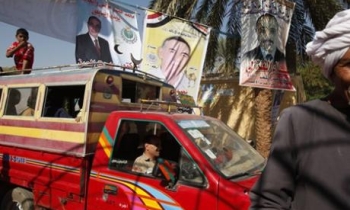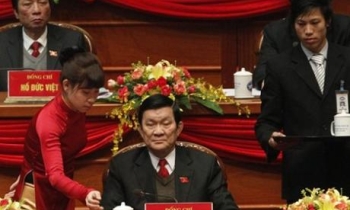A veteran crime reporter José Armando Rodríguez’s murder has been instrumental in the launch of a nationwide campaign to protect journalists in Mexico. In November 2008, Rodríguez was shot dead at his home in Ciudad Juárez on the Texas border.
With the government doing little to protect journalists, ARTICLE 19 and National Centre for Social Communication (CENCOS) have launched their own campaign against the brutal and targeted killings of their colleagues. “Te hace dano no saber” (“What you don’t know can hurt you”) is the slogan of their nationwide campaign to protect journalists in Mexico and, by default, the “right of society as a whole to be informed.”
Rodríguez was the 13th journalist to be killed in Mexico this year alone. His murder cements Mexico's position as the most dangerous country in the Americas for journalists and media professionals, even surpassing Colombia. And, like the 12 other murders of journalists in Mexico this year, impunity prevails: Rodríguez's killers have not been brought to justice.
“Journalists are under fire because of the work they do. Their presence has become uncomfortable for drug cartels, police and authorities up to the federal level. The campaign seeks to ensure that violence against journalists and impunity becomes a national outcry, and a national priority against which all actors will take action," says ARTICLE 19, which, with CENCOS, presented the campaign on the occasion of the 60th anniversary of the Universal Declaration of Human Rights.
The campaign already has the backing of more than a dozen national and international civil society organisations that have already "carried out various actions to make visible the problems in (the) country." They include International Freedom of Expression Exchange (IFEX) members World Association of Community Radio Broadcasters (AMARC), Centre for Journalism and Public Ethics (CEPET) and Reporters sans Frontières (RSF).
It also has the support of high-profile press freedom advocates. Guests at the launch included Lydia Cacho, a Mexican reporter who had been the target of death threats, sabotage, defamation suits and police harassment because of her work uncovering prostitution and child pornography networks, and Rosa Isela Caballero, wife of journalist José Antonio García Apac, who disappeared two years ago in Michoacán.
In the early stages of the campaign, CENCOS and ARTICLE 19 have unveiled a 'Practical Guide on Freedom of Expression in Mexico', a backgrounder that gives a history of free expression in the country, detailed information on which political and judicial organisations protect free expression, and an annexure of violations this year. They have also released a guide on how to document and monitor attacks on journalists—and methodologies they and others in the industry have used. All of this and more are available on the "What you don't know can hurt you" campaign website: http://www.libertad-expresion.org.mx/materiales.php.
For many years now, ARTICLE 19 has been denouncing the dire situation of journalists in a country which many in the world see as a democracy and a model of economic growth. Yet, outside of war zones, Mexico is one of the most dangerous countries in the world to practice journalism. In the last eight years, 29 journalists have been killed for practicing journalism and a further eight have been forcibly disappeared. Countless numbers work under threat and practice self-censorship. No one has been held to account for these killings and disappearances.
This campaign—the first of its kind—is addressed to the general public: "What you don't know can hurt you" seeks to raise awareness amongst Mexican men and women about the toll paid by journalists across the country, but also the toll they—the public—are paying for this violence. Their right to practice journalism is violated and with it, the right of the public to access information of central importance to their life, their future and that of their children.
"Every time information of public interest is withdrawn because of violence, threats or fears, it is a little piece of our humanity that is taken away. Whenever opinions, expression and information are torn, what makes us human is torn as well," says Agnès Callamard, ARTICLE 19 Executive Director.
The awareness raising campaign includes television and radio spots, posters throughout Mexico City, and a website. The site includes sections on adequate methodology for reporting aggressions, aggression alerts within Mexico, as well as materials about how to document cases and the situation of freedom of expression in Mexico.
In 2009, ARTICLE 19 and its Central American partners will seek to replicate the experience in Mexico in other Latin American countries, including Guatemala, El Salvador, Honduras and Nicaragua, where violence against media workers and the violation of the public's right to know is endemic. The overall objective is to strengthen local capacities and build a continent-wide protection network.
“It is time for journalist organisations, media owners and directors to assume their role in demanding the level of safety needed to truly exercise press freedom," says ARTICLE 19. "The core demands have to come from within."










